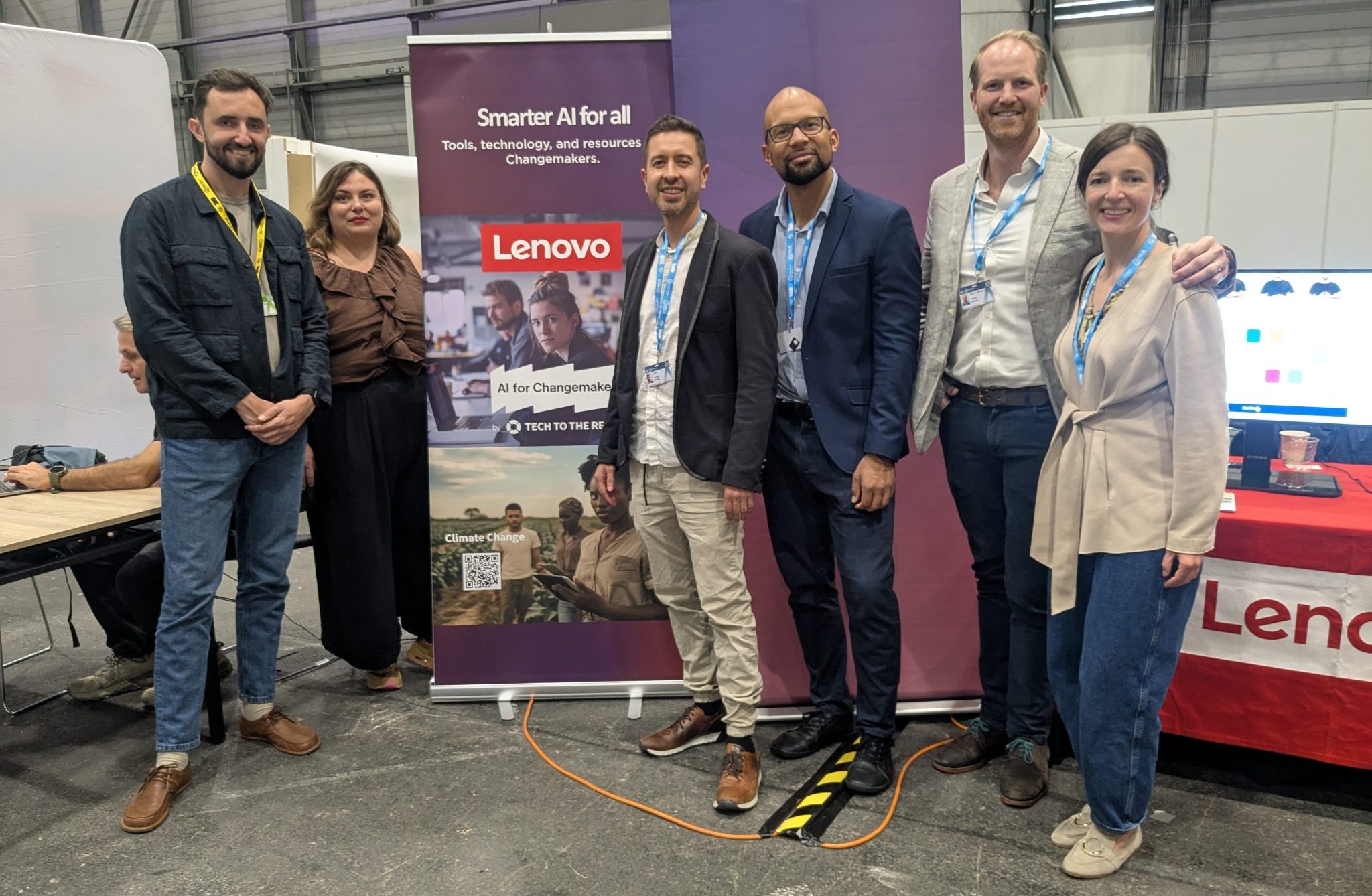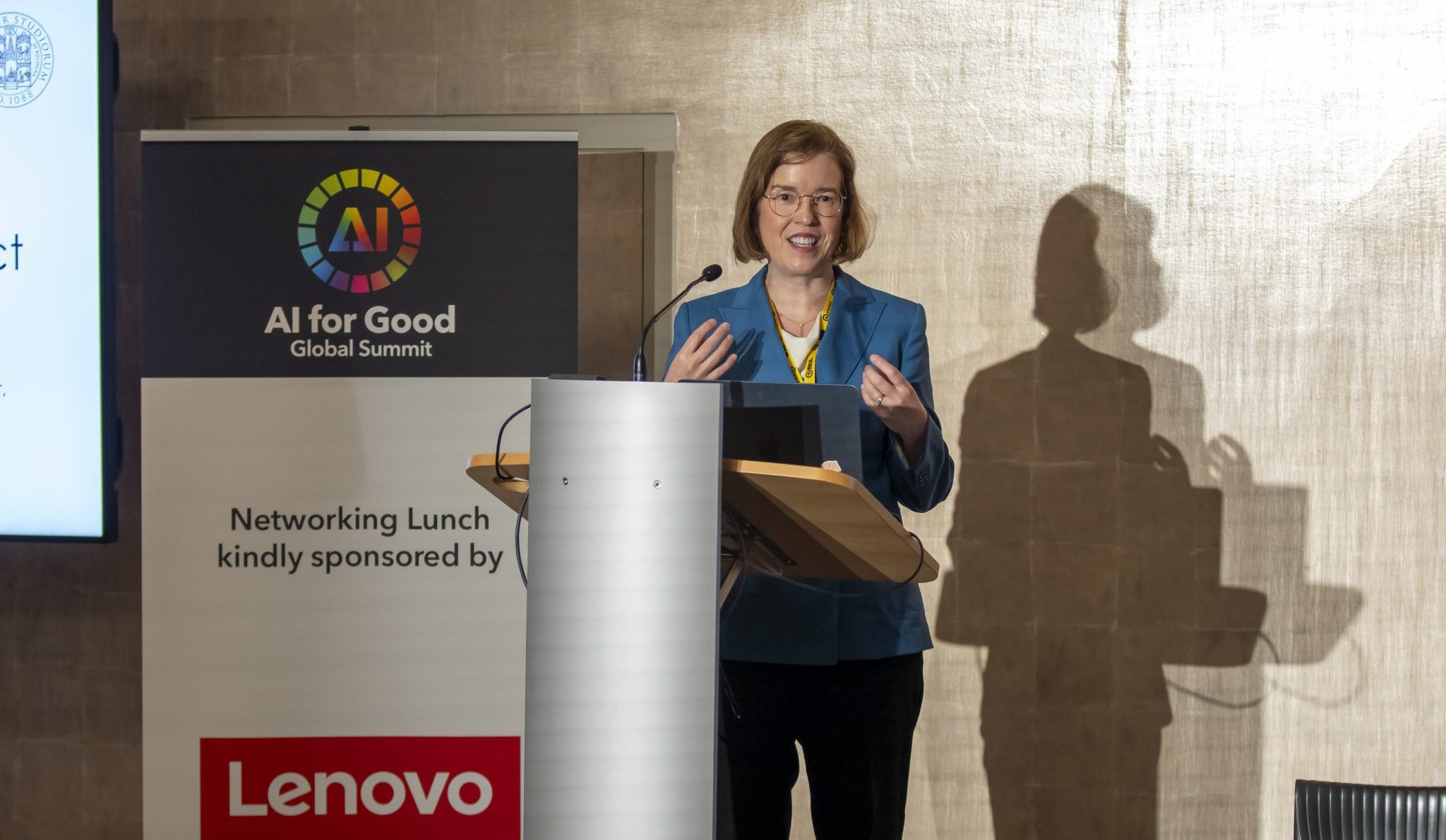Can AI be ethical and accessible to all? That was the main question the 11 thousand people who attended the AI for Good Global Summit 2025 in Geneva had in their minds. Organized by the International Telecommunication Union with over 40 UN agencies and private sector orgs, the summit was the United Nations’ premier platform for advancing artificial intelligence (AI) in support of sustainable development. Lenovo’s presence was crucial as it aligns with our commitment to delivering Smarter AI for All focus.
With AI’s use growing at an incredible scale, there is an urgent need to agree on governance and international standards to secure equitable access to the emerging technology for all countries and demographics. The summit served as a global meeting point for stakeholders across sectors to explore practical applications of AI that can accelerate progress toward the UN Sustainable Development Goals (SDGs)


As someone who has been working in the technology sector for decades, entering the solutions expo was like being in a sci-fi movie. Things that were only dreamt about in the past are now a reality, like solutions for people who need spoken language support or augmented vision for people with vision loss. The AI for Good wave is certainly here, offering a new reality for human potential. I was proud to help represent Lenovo’s focus on providing Smarter AI for All through various initiatives:
- Libras Voice2sign project: Lenovo’s Daniel Rezende presented the Voice2sign project during the AI Readiness Workshop. This solution enables hearing users to input phrases in Portuguese (via audio or text) and instantly interprets them into Brazilian Sign Language (Libras) using a Generative Human-like Avatar. (We once showcased this at Lenovo’s Tech World event.)
- AI Policy Bites Meeting: This event featured Lenovo’s Mary Jacques (Executive Director for ESG and Regulatory Compliance) and Dr. Luciano Floridi (Founding Director, Yale Digital Ethics Center) in a discussion on how AI governance can drive sustainable impact.
- Scott-Morgan Foundation: A Lenovo partner since 2021, the UK-based foundation presented their pioneering assistive tech, an AI-powered solution for people with amyotrophic lateral sclerosis (ALS) and other severe disabilities. This tech reveals new possibilities for applying generative AI to accessibility challenges and was powered by Lenovo technology and employee expertise.
- AI for Social Impact Awards: Together with ITU, Lenovo’s non-profit partner Tech To The Rescue created the first ever AI for Social Impact award to recognize the best AI for good solutions. Mary Jacques, also a Director of the Lenovo Foundation, was part of the expert jury that selected Sophia (an anonymous, confidential chatbot that supports people affected by domestic abuse), as the award winner.

The event’s five days of workshops united policy makers, NGOs, businesses, and subject matter experts through our joint interest in leveraging the transformative power of AI to make our world more sustainable and equitable. The connections and recognition garnered during the event, like the AI Social Impact Awards, are helping to build an infrastructure to guide and connect the future of AI development. Like thousands of other attendees, I left the AI For Good Global Summit feeling optimistic that through the development of innovative, measurable solutions, AI can be a powerful tool that can help create a brighter, more sustainable future.
For our part, Lenovo continues to lead in the responsible development and deployment of AI, from signing international agreements to partnering with key non-profits. We also have a Responsible AI Committee with an internal governance framework that covers ethical, legal, safety, and privacy related concerns to ensure the safe and responsible deployment of emerging solutions. And as always, we prioritize transparency in our work and report out annually on environmental, social, and governance goals.
